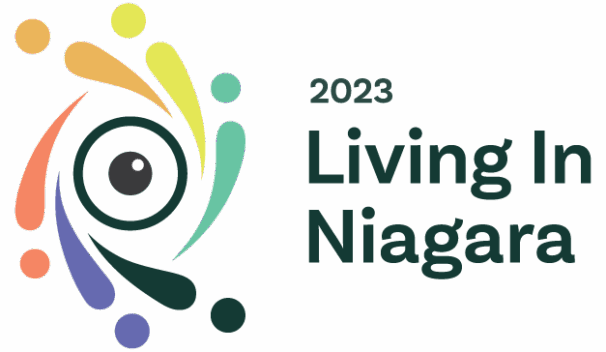ihub – The District School Board of Niagara hosts the Educational Research & Innovation Hub (ihub) in partnership with Brock University, Niagara College and Innovate Niagara. ihub facilitates collaboration among educators, students, parents, researchers, industry leaders, and ihub Portfolio Companies. It is the first educational technology incubator in North America to be located inside a K-12 school facility.
Source: ihub
Retrieved From: http://ihubniagara.ca/
Ladies Learning Code – With a focus on digital literacy for women and youth, Ladies Learning Code (LLC) is a Canadian not-for-profit organization founded in 2011. LLC’s mission is to be the leading resource for women and youth to become passionate builders – not just consumers – of technology by learning technical skills in a hands-on, social, and collaborative way. The Niagara Chapter of LLC, launched in 2016, runs beginner-friendly computer programming workshops.
Source: Ladies Learning Code Niagara
Retrieved from: http://ladieslearningcode.com/chapters/niagara/ and https://twitter.com/learningcodengr and https://www.facebook.com/learningcodengr/
Code Niagara launched in 2017, with a mission to empower and provide the Niagara community with the skills, tools and platforms needed to succeed in the digital age. The vision is to provide access to formal technology training as it relates to development, design and beyond. The goal is to see computer science adopted as a part of school curriculum in Niagara.
Code Niagara points to projections that there will be a shortage of more than 200,000 information and communications technology (ICT) workers in Canada by 2020. This figure comes from the 2016 National Strategy to Develop Canada’s Talent In a Global Digital Economy report by the Information and Communications Technology Council (ICTC), Canada’s not-for-profit national centre of expertise for the digital economy.
The ICTC report notes Canada’s relatively low adoption rate of technology for business sector innovation, due largely to the lack of skilled digital workers who can assess and implement technological innovations. The report states, “This is particularly vital for small and medium-sized enterprises (SMEs) that acutely need skilled digital talent, but have limited means to train or find a job-ready workforce to respond to the fast-changing reality of the global economic landscape”. This issue is of particular importance for Niagara, as SMEs comprise the core of Niagara’s economy.
Source: Code Niagara
Retrieved from: https://www.codeniagara.com/
Geospatial Niagara is a non-profit organization that engages the citizens of Niagara by increasing access to geospatial technology and information through geographic prospects and volunteering. They work to create educational opportunities that encourage economic prosperity through community minded projects.
Since their inception in June, 2014, Geospatial Niagara has participated in over 25 internship projects valued at a projected $626,425 and engaged over 2,000 students. These projects include TreeOcode Niagara, which has coded almost 24,000 individual trees, resulting in over $1.5 million in annual eco-benefits. This program seeks to build relationships with local area municipalities to educate Niagara residents on the benefits of the Urban Forest Canopy and encourages tree planting practices on private property.
The Niagara Aspiring Geopark is a project seeking to educate, incorporate and encourage residents’ relationships with the geography surrounding them through a UNESCO Geopark Designation, which would elevate the Niagara region to a global platform.
In addition, the Niagara Minecraft Project utilizes existing geospatial data and a ETL (Extract, Transform, Load) conversion program to transfer this same information into the video game Minecraft. The goal of the Minecraft project is to improve education opportunities such as all levels of math and geospatial understanding beyond the elementary years of school.
Source: Geospatial Niagara
Retrieved from: http://www.geospatialniagara.com/
CONNECT is Canada’s largest education technology conference. It began in 2013 as a national conference to explore how technology can be used to enhance teaching and learning. CONNECT now offers a wide variety of presentations and workshops, from integrating technology with arts and music, Math or animation and 3D printing, to Virtual Learning Environment and Professional Learning Communities.
The 4-day event, held in Niagara Falls attracts over 2,000 participants including educators and education leaders; IT and information managers; education business managers and administrators; and library managers. CONNECT Advisory Committee membership includes the District School Board of Niagara, Niagara Catholic District School Board, Conseil scolaire Viamonde, Brock University and Niagara College. The mission is to connect all sectors in order to help raise the standards of 21st century teaching, training and learning in education.
Source: CONNECT Canada’s Learning and Technology Conference
Retrieved From: http://www.canconnected.com/
Online learning is crucial for students who require a flexible approach to post-secondary education. Since 2014, Brock University has offered 44 new online courses and generated an additional 6,500 online student enrolments. Brock has participated in the eCampusOntario online course and program development initiative. Niagara College offers 50 courses on eCampusOntario.
Brock recently partnered with Niagara College in the development of a new certificate in Post-Secondary Studies and an honours degree in Adult Education, geared specifically for the college educator.
Source: Brock University, Niagara College and eCampusOntario
Retrieved From: https://learnonline.ecampusontario.ca/Online-Colleges-Universities/357/brock-university and https://learnonline.ecampusontario.ca/Online-Colleges-Universities/396/niagara-college-of-applied-arts-and-technology
Rural Internet Access
In April 2016, Innovation, Science and Economic Development Canada announced funding for 23 Internet service providers across Canada would receive a total of $34.5 million to increase broadband Internet access for over 65,000 households in rural areas. This investment included approximately $600,000 to allow Xplornet Communications Inc. to bring improved access to over 7,000 households in the Niagara Region and the counties of Haldimand and Norfolk.
Source: Innovation, Science and Economic Development Canada
Retrieved From: http://www.marketwired.com/press-release/faster-more-reliable-internet-coming-to-rural-communities-across-canada-2113358.htm
Niagara Region is part of the SWIFT (SouthWestern Integrated Fibre Technology) Network. SWIFT aims to build an ultra high-speed fibre-optic network across southwestern Ontario, to connect over 350 communities and more than 3.5 million Ontarions with broadband Internet access. In 2016, SWIFT received $180 million in funding support from the federal and provincial governments.
Source: SWIFT Network
Retrieved From: http://swiftnetwork.ca/
Computers Available for Public Use in Public Libraries in Niagara
The following table shows the number of computers available for public use at the library systems in Niagara in 2015. Public libraries are useful places for self-education and research, and computer access has enhanced their capability to facilitate learning.
| Library System | Workstations | Internet Access | OPAC/ILS Access | Laptops/Tablets | E-readers |
| Fort Erie | 55 | 50 | 5 | 4 | 0 |
| Grimsby | 22 | 22 | 5 | 10 | 0 |
| Lincoln | 17 | 17 | 4 | 0 | 0 |
| Niagara Falls | 56 | 38 | 18 | 0 | 3 |
| Niagara-on-the-Lake | 15 | 12 | 3 | 0 | 0 |
| Pelham | 10 | 8 | 2 | 0 | 3 |
| Port Colborne | 15 | 15 | 15 | 6 | 7 |
| St. Catharines | 74 | 74 | 74 | 8 | 5 |
| Thorold | 14 | 9 | 3 | 8 | 2 |
| Wainfleet | 7 | 6 | 1 | 8 | 6 |
| Welland | 45 | 27 | 15 | 3 | 0 |
| West Lincoln | 11 | 11 | 11 | 2 | 1 |
Source: Ministry of Tourism, Culture and Sport. Ontario Public Library Statistics.
Retrieved from: https://www.ontario.ca/data/ontario-public-library-statistics








